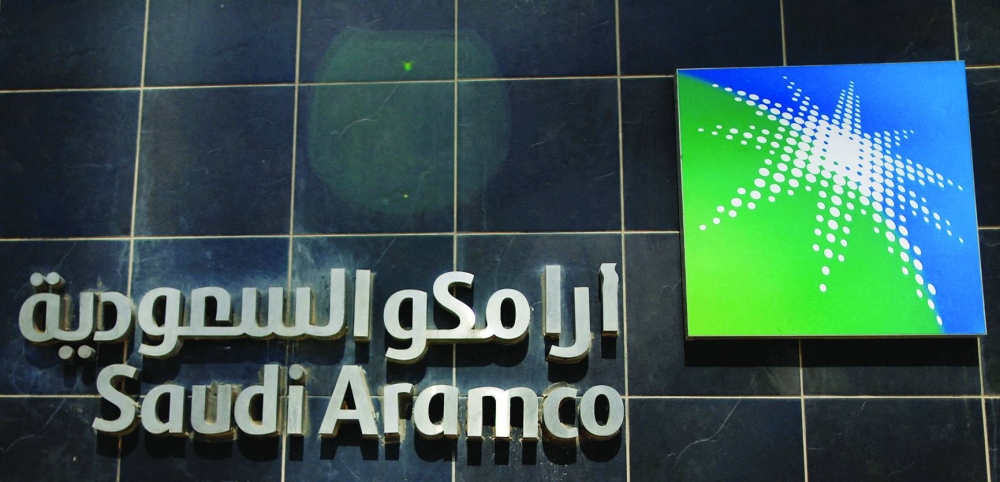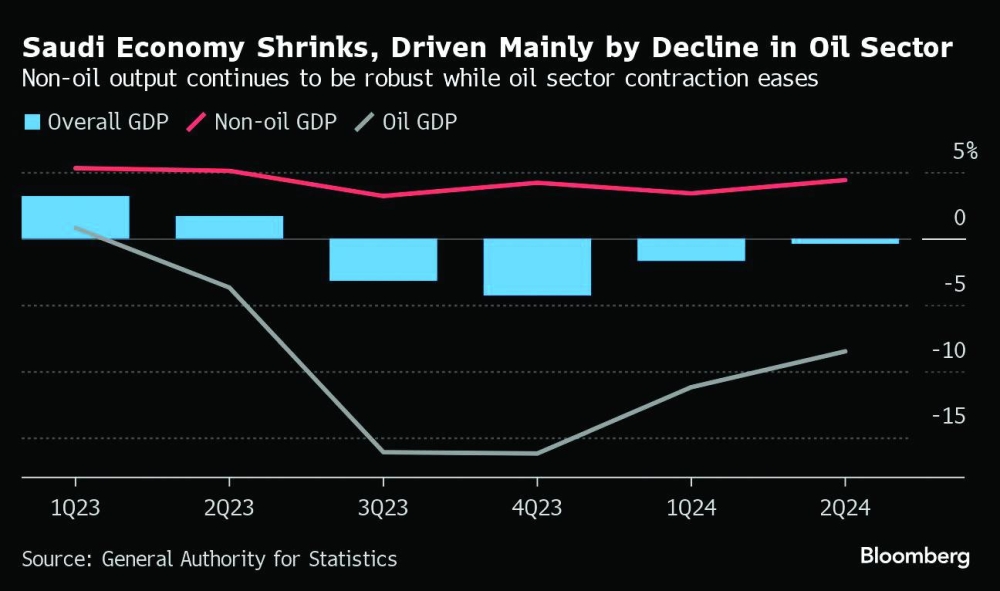Saudi Arabia’s economy contracted at a slower pace before a likely turnaround starting this quarter ends a stretch of declines that began a year ago, as the effect of Opec+ oil production cuts begins to wane.
Gross domestic product shrank an annual 0.4% in the April-June period, according to preliminary data published by the General Authority for Statistics on Wednesday. That’s an improvement from a drop of 1.7% in the previous three months.
Forecasts compiled by Bloomberg show the $1.1tn economy is set to return to growth in the third quarter with a gain of almost 4%, in what would be the biggest acceleration since the end of 2022.
“We expect this to be the last quarter of deeply negative hydrocarbon sector growth,” said Carla Slim, an economist with Standard Chartered Plc.
Officials have long focused on the health of Saudi Arabia’s non-oil economy, which generates jobs for the bulk of the population but remains highly sensitive to the flow of petrodollars into government coffers.
The kingdom’s second-quarter budget deficit came in at 15.3bn riyals ($4.1bn), according to data by the Ministry of Finance on Wednesday, also showing just how reliant the government still is on hydrocarbon revenue. Authorities expect the budget will be in the red for at least several years.
Still, reversing a broader downturn has taken on more urgency for Crown Prince Mohamed bin Salman’s Vision 2030 plan that will require hundreds of billions of dollars in new investments. The International Monetary Fund cut its estimate for Saudi GDP growth this year to 1.7% from 2.6% in April.
The overall decline last quarter was primarily driven by an 8.5% contraction in the oil sector. Activity in the non-oil economy grew by an annual 4.4%, up from 3.4% in the prior three months.
On a quarterly basis, economic growth was unchanged at 1.4% during the April-June period.
“Despite their label, Saudi non-oil sectors depend on oil prices. Their growth rate tends to rise in tandem with the price of crude. Vision 2030 – which aims at diversifying the economy – hasn’t changed that,” according to Ziad Daoud, chief emerging-markets economist, Bloomberg Economics.
The Organisation of Petroleum Exporting Countries and its allies have been withholding supplies for almost two years in a bid to prop up prices. Yet Brent crude is averaging around $83.5 a barrel so far this year — lower than the price Saudi Arabia needs to balance its budget, which the IMF estimates at $96.
Bloomberg Economics puts the break-even price at $109, once domestic spending by the kingdom’s sovereign wealth fund is taken into account.
Oil prices jumped on Wednesday after Israel’s attack on a senior Hezbollah commander in the Lebanese capital Beirut and the assassination of Hamas’s political leader Ismail Haniyeh in Tehran. Brent crude rose to around $80 after tumbling by 4.5% over the previous three sessions.
Geopolitics has long been a key concern for top Saudi officials like Finance Minister Mohamed al-Jadaan, who’s called it the No 1 risk facing the global economy.

The logo of Saudi Aramco is seen at its headquarters in Dhahran. Saudi Arabia’s economy contracted at a slower pace before a likely turnaround starting this quarter ends a stretch of declines that began a year ago, as the effect of Opec+ oil production cuts begins to wane.

